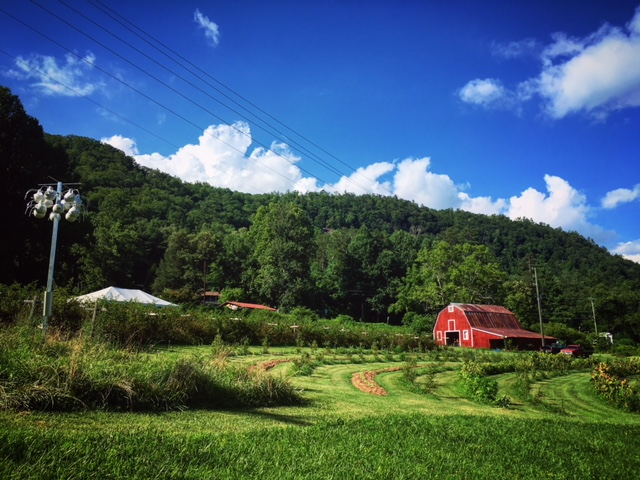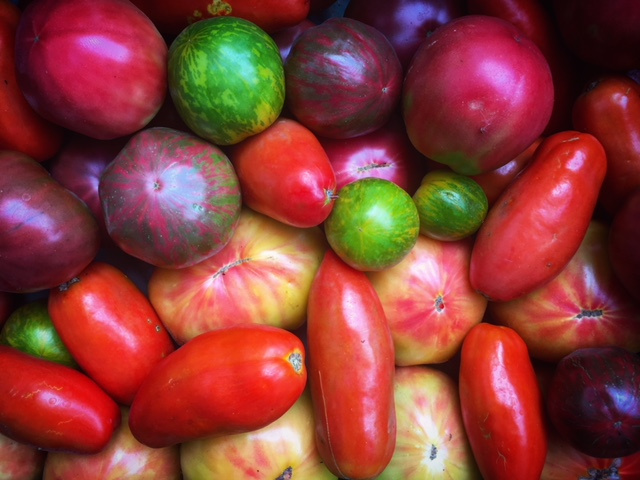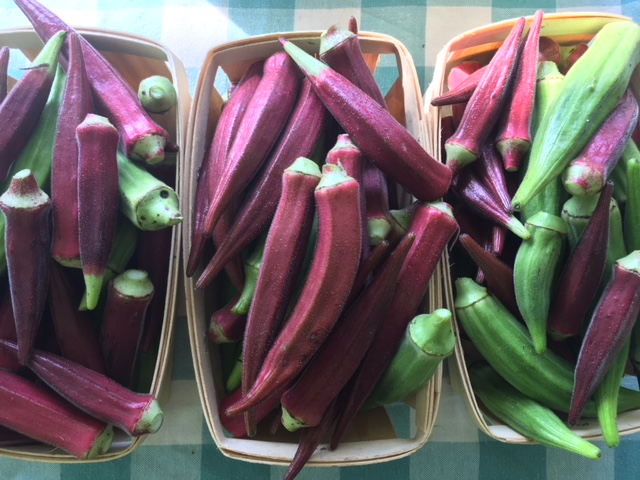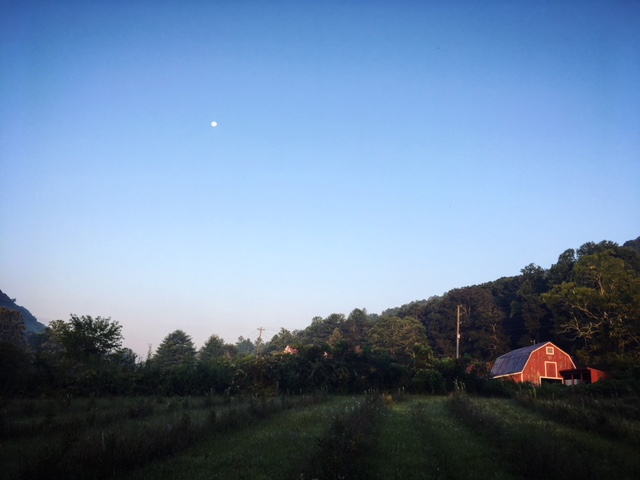
By Darby Weaver
Timpson Creek Farm, Clayton, Georgia
I’ve just reached September in what has been one of the toughest Southern summers of growing that I can remember. Although the air is still hot and sticky on my skin, I can feel a deep coolness condensing in my bones. The goldenrod has set fire to the hillsides and the trees will soon follow. The desperate last blooms of the season reach out their arms and yet the petals are quieter and less covered in the pulsating fabric of pollinators and hunters that dominated this territory in July and August.
After months of flooding and rain, the hurricane season has brought the usual dry autumn weather to this region in Southern Appalachia and the ground has been baked hard like clay in the kiln. As the seasons go by I watch the lines on my face spread and deepen, the lessons I’ve been forced to learn finding their place nestled in my tired skin. I think back to the momentum of newness when I first decided to break ground and care for livestock — the seemingly endless instances of beginner's luck. This current place I stand, harnessed from the energies mixed together from the past, is more stable and steadfast and yet less delusioned about the the realities of living and working on a farm.
There is so much beauty at the beginning of one's journey. The ways that the earth and her intricate systems steadily reveal themselves to those who seek to learn are cocktails of tiny miracles. Failing season after season in one way or another at the hands of the unpredictable, changing conditions is softened by a life lived among butterflies and stirring sunsets. The ambition to go out and change the world with your visions is slowly reduced down to hand-held aspirations, like gathering a community around a bucket of crowder peas that need shelled. The strong arms that at one time seemed to be able to hold up the entire Earth are suddenly tired hauling potatoes in from the field. It is not as though the work of the land loses its luster as the seasons go by, but a maturation within the relationship of self to landscape roots a deep honesty about what the land can do and how the steward can help.

I find myself less and less concerned with having something to market first or bringing the most of one crop or another. These desires to outdo or outgrow as a means of communicating talent have withered some as I’ve spent months under the hard sun. My experiences in the field have weathered me down to deep gratitude. I am grateful for what can be made from the natural forces of this world. I am grateful that I have the opportunity to live in ever evolving communion with the elements and their archetypal inhabitants. I find great joy in seeing the innovations in agriculture and the new methods for increasing productivity while limiting impact. Most of all I treasure the newest generation of farmers and their big ideas. I respect that niche they occupy where their reach is far and wide and their thoughts are fresh and optimistic, newly cultivated from books, internships, and elders.
So much of my understanding of this world has been gleaned from hands, dirt caked, deep in the soil, or sticky from picking apples, okra, or berries. Watching the natural world take diversity and chaos and layer them into harmony has given me a great admiration for balance. The farming lifestyle itself does not always allow for what would be considered a balanced work and home life. To continually hone in on my craft to create this freedom is something that brings me great peace and satisfaction. Imagining myself at 50 years old working the way I did when I was in my 20s places a dull ache between my shoulders.
These initial, aggressive efforts made paved the way for the wisdom bestowed upon me from the land to diversify. I diversify my offerings, my revenue streams, and always my approach. I try to come at things from different angles; I see all of those around me as teachers bearing certain gifts. I lean heavily on my soul to try and guide me towards the thought patterns I should pick up and the self limiting habits that I need to put back down.
Every morning that the sun rises, I get the sense that my efforts here are less about what I produce and more about what I become. I do my best to shield my fragile ego from comparing myself to others and I grow steadily in tune with the rhythm of the valley. In moments of total exhaustion, I lay in the grass and watch my heartbeat flow out and touch everything around it. I see the ways in which I have become inextricably linked to the forests and creek beds and I do my best to honor the privilege with gentle touches in the garden.

At the onset of the full moon when the world is plump and vital, I take my burdens down to the creek and wash them off of my face and hands. I use these instances of fluidity to grieve and process and push through emotional stagnations that have built up within my organs and muscles. By the time the new moon comes, I am ready to rebuild and start anew. I am refreshed and more able to internalize this human experience once again.
My career in farming was born of my desire to understand this human-dominated realm. I placed so much emphasis as a young person on how human beings were the problem and never spent too much time thinking about how they also had to be the answer. It was so easy in my youth to see the two things as separate: the natural world and human beings. This desire to make right what has been made wrong by people is the force that gave me the courage to push ahead and attempt to make a difference. It wasn’t until years later that I was truly awakened to the idea that these two pieces are, in fact, the same.

The consciousness of the Earth has ascended so far within us that is has become a danger to itself. We cannot look to human beings and believe that our hearts and minds are bent on devastation. It is more that our aspirations and skills are simply reaching ahead of our wisdom. Our awareness and our abilities are not rooted in the evident balance of the natural world and this capacity for developing systems based on regeneration can only be learned through trial and error. Our society is young and has not been molded by these eternal forces long enough to see the fault in our ways, but that day will come and has already for some of us along our journeys here.
My own journey finds me washing root vegetables in the valley. I make a small pile and this abundance feels like wealth. I run my hand along the face of my cow and I see in her eyes glimmers and flashes of deep understanding she has obtained that will forever evade me. I store my hope for humanity in the pantry with the chicken eggs and go about my day, playing my part. The Earth continues to turn and the rotting plants in the field go through their transformations into fertility without my help. I pick a few leaves of kale for dinner, absorb their resonance, and awake in the morning with different thoughts. The consciousness of the valley peaks in my mind and I carry the responsibility like a newborn child.

Add new comment